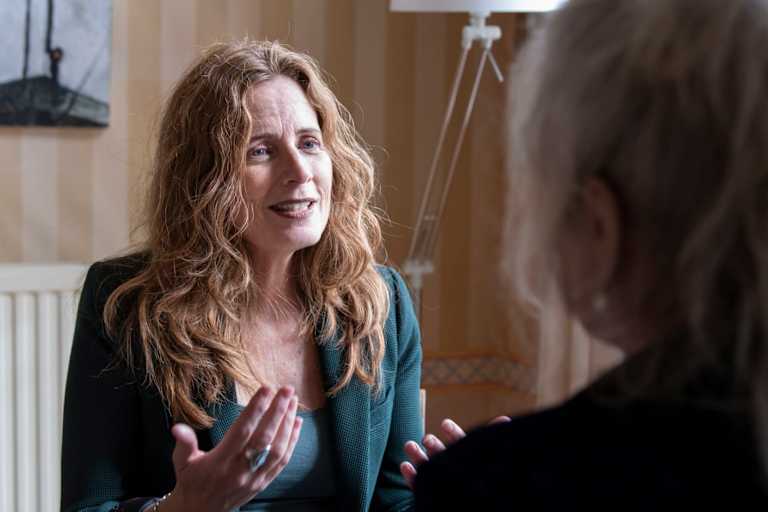Counselor Salary: How Much Can You Make?
Counselors earn a median annual salary of $46,130 as of May 2023, according to the Bureau of Labor Statistics (BLS).
However, the field of counseling spans many different roles with a wide range of earning potential. For instance, educational, guidance, and career counselors and advisors earn a median annual salary of $65,410, according to 2024 BLS data.
To practice counseling, you’ll need a master’s degree in counseling, psychology, or a related field and 1-2 years of supervised clinical experience. Finally, you’ll need to pass a national licensure exam and apply for state licensure. Only then can you start your career and earn a counselor’s salary.
In this guide, we’ll break down the earning potential for a counseling career, provide guidance on how to boost your salary, and take a look at other jobs that are similar to counselor.
Counselor Salary Overview
Counselor salaries can vary by specific role, years of experience, location, and employer. While the median annual salary for counselors is $46,130 as of May 2023, those in the 90th percentile earn more than $79,880 per year, per the BLS. Meanwhile, the lowest 10% earned less than $33,300 annually during the same time period.
Counseling careers generally have a positive job growth outlook, with employment for most roles projected to grow faster than the average rate for all occupations.
The BLS projects employment for substance use, behavioral disorder, and mental health counselors to grow by 19% and employment for marriage and family therapists to grow by 16% from 2023 to 2033. By contrast, employment for educational, guidance, and career counselors and advisors is projected to grow by 4%, which aligns with the projected average job growth rate for the same time period, according to the BLS.
Counselor Salary by State
Average annual counselor salaries vary by state, ranging from around $38,000 to roughly $106,000 per year. Counselors in Virginia earned the highest average annual salary at $106,560, while counselors in Arkansas earned the lowest average annual salary at $38,580, according to 2024 BLS data.
These variations are influenced by factors such as the demand for counseling services, the cost of living, and the number of counselors available in the area.
Table: Psychologist Salary by State
| ▲ |
|---|
| Alaska |
| Arizona |
| Arkansas |
| California |
| Colorado |
| Connecticut |
| Delaware |
| Florida |
| Georgia |
| Hawaii |
How to Raise Your Counselor Salary
1 | Gain Experience
The more experience you have, the more you can earn. Keep your resume up to date. Employers like to see commitment through steady employment.
As you gain work experience, you can improve essential counseling skills that can make you more competitive in the job market.
You can also consider volunteering for extra tasks, such as supervisor responsibilities. Taking opportunities like these can demonstrate your enthusiasm for work.
2 | Develop Your Counseling Skills
To become an effective mental health counselor, you’ll need to develop a range of skills. Skills like empathy, active listening, crisis intervention, and cultural competence are all key for counselors seeking to help clients manage life’s challenges.
Another key skill is record-keeping, which allows you to stay organized when managing documents, such as those that track patient progress.
You can improve these skills in various ways, from pursuing further education to earning a certification.
3 | Get Certified
Certifications can help you obtain advanced skills, knowledge, and credentials that can boost your career.
However, these certifications are not easy. For example, the National Certified Counselor (NCC) and Master Addictions Counselor (MAC) certifications show that you’ve met rigorous requirements.
You can also pursue the Certified Clinical Mental Health Counselor (CCMHC) or National Certified School Counselor (NCSC) certifications, which allow you to specialize in certain areas of interest. You can then find more professional opportunities and maybe a job with a higher salary.
More Jobs Like Counselor
Here are some additional jobs that are similar to counselors, with education requirements as well as salary and job outlook data from the BLS:
Social Workers
- Minimum Education Required: Master’s degree in social work
- Median Annual Salary (May 2024): $61,330
- Job Growth Rate (2023-2033): 7%
As a social worker, you’ll help connect clients to resources like food, housing, and financial and mental health assistance. You can even become a clinical social worker who provides therapy to groups and individuals.
The job may require travel, such as to schools. However, social workers most often work in human service agencies, government offices, nonprofits, and residential facilities.
Substance Use Counselors
- Minimum Education Required: Typically, a bachelor’s degree in a related field, though some states or employers may require a master’s degree
- Median Annual Salary (May 2024): $59,190
- Job Growth Rate (2023-2033): 19%
As a substance use counselor, your work will center around helping people manage chemical dependency. You’ll need teaching skills, which you can gain from a master’s in psychology program, to help your clients build lasting coping strategies.
School and Career Counselors and Advisors
- Minimum Education Required: Typically, a master’s degree in counseling, psychology, or a related field
- Median Annual Salary (May 2024): $65,140
- Job Growth Rate (2023-2033): 4%
If you’re passionate about helping students succeed, you may enjoy a career as a school counselor. You’ll help students manage personal, academic, and career challenges. You’ll need active listening, communication, and record-keeping skills.
Frequently Asked Questions About Counselor Salaries
Educational, guidance, and career counselors and advisors get paid among the most of any counselors, earning a median annual salary of $65,140 as of May 2024, according to the BLS. However, you’ll typically need a master’s degree in counseling or psychology to practice.
Another counselor role with high earning potential is marriage and family therapist, which earns a median annual salary of $63,780, according to 2024 BLS data.
Explore More College Resources

Mental Health Counselor Salary: How Much Can You Make?
Mental health counselor salaries vary between role, location, and experience level. Read our page to learn how much mental health counselors make.

Best Online Master’s in Counseling Programs of 2025
Earning your master’s in counseling online can prepare you for a rewarding career in a high-demand field. Discover which programs are best for you.

Counseling Careers
Counseling means helping people every day — whether that’s families, students, or individuals. Explore popular counseling careers and what they entail.